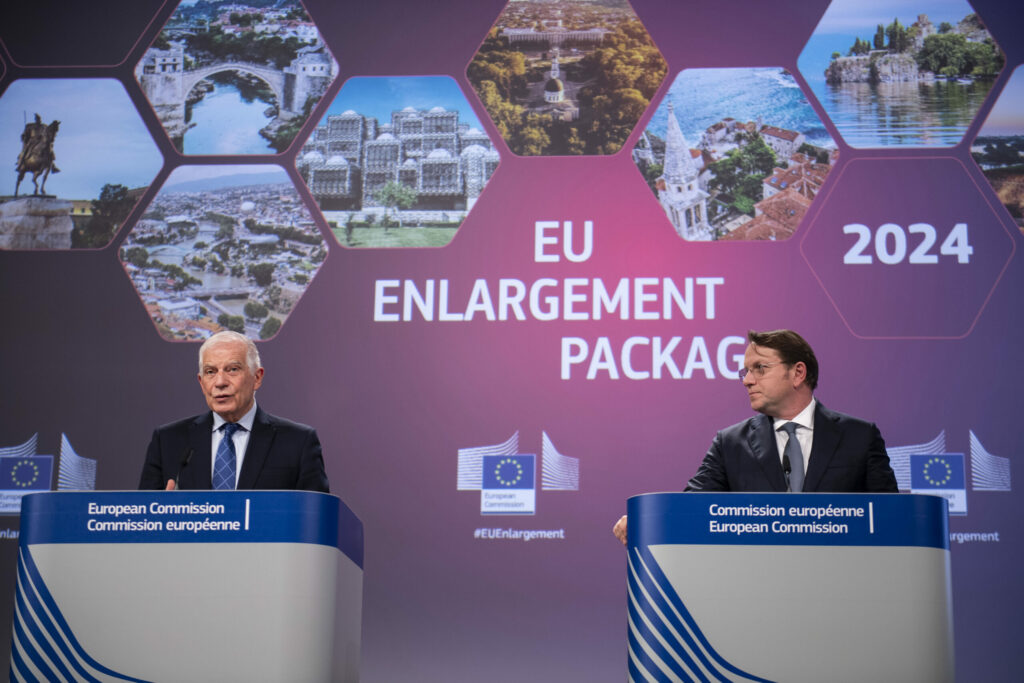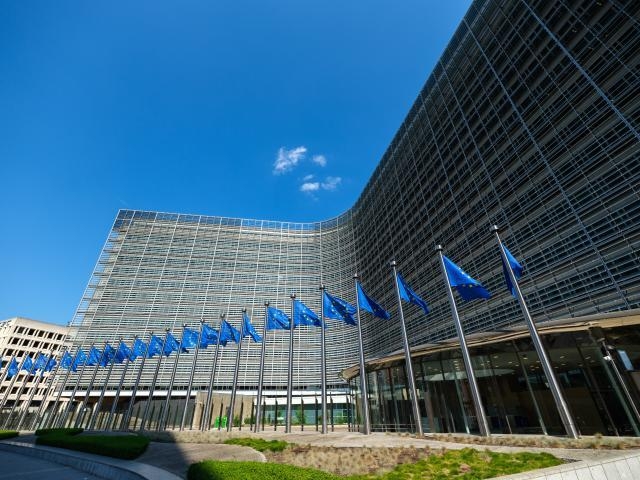The European Commission adopts 2024 Enlargement Package

Today, the European Commission adopted its annual Enlargement Package, providing a detailed assessment of the state of play and the progress made by Albania, Bosnia and Herzegovina, Kosovo, Montenegro, North Macedonia, Serbia, Georgia, the Republic of Moldova, Ukraine and Türkiye, on their respective paths towards EU accession. The assessments are accompanied by recommendations and guidance on the reform priorities.
Enlargement is a historic opportunity both for the acceding countries and for the current Member States and the EU as a whole. There are significant socio-economic, political and security advantages of a bigger and stronger Union.
European Commission President, Ursula von der Leyen, said: “The tense geopolitical context makes it more compelling than ever that we complete the reunification of our continent, under the same values of democracy and the rule of law. We have already taken great strides over the last years towards integrating new Member States. And enlargement will remain a top priority of the new Commission”.
The enlargement process continues to be merit-based and depends on the objective progress made by each of the partners. This requires determination to implement irreversible reforms in all areas of EU law, with special emphasis on the fundamentals of the enlargement process. Democracy, the rule of law and fundamental values will continue to be the cornerstones of the EU’s enlargement policy. EU membership remains a strategic choice.
The enlargement process gained new momentum throughout 2023 and 2024. The fundamentals cluster was opened with Albania on 15 October 2024. Accession negotiations were opened with Ukraine and Moldova at the first intergovernmental conferences in June 2024. Having met the interim benchmarks for the rule of law chapters, Montenegro is on the way to provisionally closing further negotiating chapters. In March 2024, the European Council decided to open accession negotiations with Bosnia and Herzegovina. The screening process was completed with both Albania and North Macedonia at the end of 2023.
In June 2024 the intergovernmental conference confirmed that Montenegro overall met the interim benchmarks for the rule of law chapters 23 and 24, providing the opportunity to proceed with provisionally closing further chapters if conditions are met. In the rule of law area and judiciary further progress is needed.
The Commission reiterates its assessment that Serbia has fulfilled the benchmarks to open cluster 3 (Competitiveness and inclusive growth). In the coming year, Serbia is expected to speed up the work on the implementation of EU-accession related reforms across the board, with a particular focus on the rule of law interim benchmarks as well as ensuring a truly enabling environment for civil society and media, making credible efforts to shut down disinformation and foreign information manipulation.
When it comes to Albania, the Commission welcomes the opening of negotiations on the fundamentals cluster at the second intergovernmental conference held on 15 October 2024. It is crucial for the authorities to further intensify the pace of EU oriented reforms, notably on the rule of law, consolidating the track record on law enforcement, on effectively fighting corruption and organised crime, and the promotion of fundamental rights, including media freedom, property rights, and minorities.
In the case of North Macedonia, the country needs to continue to deliver on the implementation of EU-related reforms, in particular under the fundamentals cluster, notably the judiciary, the fight against corruption and organised crime. Trust in the justice system needs to be strengthened. The screening sessions for all the six clusters of the EU acquis were completed in December 2023.
Bosnia and Herzegovina demonstrated tangible results including on migration management, full alignment with the EU’s common and foreign security policy, as well as by passing legislation on integrity of the judiciary, anti-money laundering and conflict of interest. In March 2024 the European Council decided to open accession negotiations with Bosnia and Herzegovina. The Commission is preparing the negotiating framework with a view to its adoption by the Council the moment all relevant steps set out in the Commission’s recommendation of October 2022 are taken.
Kosovo submitted an application for EU membership in December 2022. The Commission remains available to prepare an Opinion on Kosovo’s membership application as soon as the Council requests it. Progress was recorded in the fight against organised crime, and the business environment improved. Visa liberalisation for Kosovo entered into force on 1 January 2024. Kosovo needs to intensify its efforts to strengthen the rule of law and public administration and to protect freedom of expression.
Next steps
It is now for the Council to consider today’s recommendations of the Commission and take decisions on the steps ahead in the enlargement process.
For More Information
2024 Communication on EU Enlargement Policy
Factsheet on the EU accession process
For detailed findings and recommendations on each country, see:
Albania: Report; Country factsheet
Bosnia and Herzegovina: Report; Country factsheet
Kosovo: Report; Country factsheet
Montenegro: Report; Country factsheet
North Macedonia: Report; Country factsheet
Serbia: Report; Country factsheet
Background
EU enlargement will bring far reaching socio-economic benefits to its current and future members. The increase in the number of consumers in the single market will provide major opportunities for business to expand and trade more freely. To enable sustainable growth in the medium term and make progress in meeting the economic criteria for EU membership, it is increasingly important that enlargement countries accelerate structural reforms. This involves ensuring functioning market economies and demonstrating capacity to cope with competitive pressure and market forces in the EU. Economic policies should also support ambitious goals under the green and digital transition.
New tools and instruments are boosting the socio-economic growth in the Western Balkans partner countries. As the accession process accelerates, the EU is bringing forward some of the benefits of single market and providing increased financial assistance to enable our partners’ gradual integration and anchoring in the EU. In addition to the successful Economic and Investment Plans, the Growth Plan for the Western Balkans with its €6 billion Reform & Growth Facility is incentivising reforms, with justice and the rule of law at the core.



